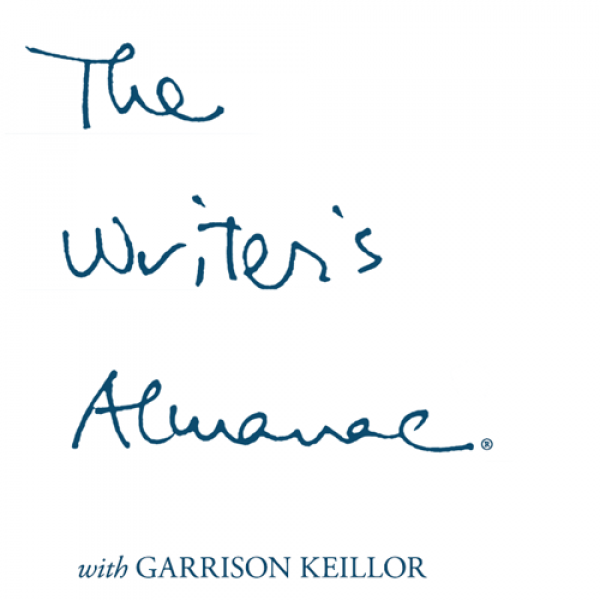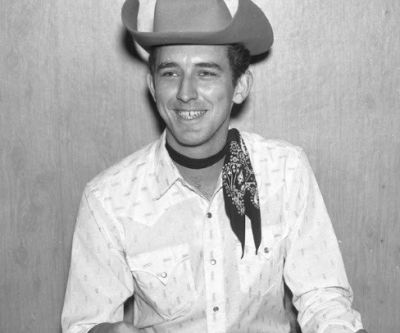December 20, 2018
Tuesday
8:00 p.m.
Minneapolis, MN
Test schedule
A live performance with Robin and Linda Williams at the Cedar Cultural Center
May 20, 2018
Sunday
3:00 p.m.
Lexington, MA
Lexington, MA
A live performance at the Saenger Theatre
April 10, 2018
Tuesday
8:00 p.m.
Tulsa, OK
Tulsa, OK
A live performance at the Brady Theater
March 17, 2018
Saturday
8:00 p.m.
Long Beach, CA
Long Beach, CA
A live performance at the Carpenter Performing Arts Center
March 15, 2018
Thursday
7:00 p.m.
Mobile, AL
Mobile, AL
A live performance at the Saenger Theatre
“Good-Night” by Percy Bysshe Shelley. Public domain. (buy now)
Good-night? ah! no; the hour is ill
Which severs those it should unite;
Let us remain together still,
Then it will be good night.
How can I call the lone night good,
Though thy sweet wishes wing its flight?
Be it not said, thought, understood—
Then it will be—good night.
To hearts which near each other move
From evening close to morning light,
The night is good; because, my love,
They never say good-night.
It’s the birthday of novelist and short-story writer J.F. Powers, (books by this author) born James Farl Powers in Jacksonville, Illinois (1917). His family was Catholic in a heavily Protestant town. He went to Catholic school, he was a great basketball player, and then he started working odd jobs to support himself and his family during the Great Depression. By the time WWII started, he was unemployed and living in Chicago, but he loved it because he met all sorts of interesting people — jazz singers, political exiles, pacifists.
Powers refused to join the war, and so he was sent to a federal prison in Sandstone, Minnesota. He was paroled to work as an orderly in a hospital in St. Paul, and he wrote fiction at night. In 1947, he published Prince of Darkness,a book of short stories. He continued to write novels and short stories, mostly satire, many of them about priests in small towns in Minnesota. His novel Morte d’Urban (1962) won the National Book Award.
It was on this day in 1819 that John Keats (books by this author) wrote one of his most famous lines: “I love you the more in that I believe you have liked me for my own sake and for nothing else. I have met with women whom I really think would like to be married to a Poem and to be given away by a Novel.” It was part of letter to his beloved Fanny Brawne, a letter that began:
“My sweet Girl—Your Letter gave me more delight than any thing in the world but yourself could do; indeed I am almost astonished that any absent one should have that luxurious power over my senses which I feel. Even when I am not thinking of you I receive your influence and a tenderer nature stealing upon me. All my thoughts, my unhappiest days and nights have I find not at all cured me of my love of Beauty, but made it so intense that I am miserable that you are not with me: or rather breathe in that dull sort of patience that cannot be called Life.”
It was one of the earliest of his famous letters to Fanny Brawne, though the two had met almost a year before, in the autumn of 1818. Keats was in love with another woman, Isabella Jones, at the time, but by late spring of 1819, he’d become devoted to Fanny Brawne.
The two became secretly engaged, but never married, and Keats died of tuberculosis a year and a half later, at the age of 25. She lived for another 45 years after his death. Keats’ now-famous love letters to her were unknown until 1878, when they were first published — more than half a century after he wrote them.
Percy Bysshe Shelley (books by this author) died at sea off the coast of Italy on this day in 1822, just shy of his 30th birthday. He had been living in Lerici for about four years, and his work was maturing; most of his poems prior to that time had been political in nature, but when he got away from the daily annoyance of British politics, he began to realize that he couldn’t reshape the outside world, so he transferred his idealism to his poetry.
He had sailed from his home in Lerici to Livorno to visit his friend Leigh Hunt. On the return, the seas were stormy, and his schooner sank. Shelley had never bothered to learn to swim, and he drowned. The conservative London newspaper The Courier reported, “Shelley, the writer of some infidel poetry, has been drowned: now he knows whether there is a God or no.” Uncharitable obituaries aside, he was almost immediately re-created as a tragic, otherworldly figure. His widow, Mary Wollstonecraft Shelley, set the ball in motion when she wrote, “I was never the Eve of any Paradise, but a human creature blessed by an elemental spirit’s company & love — an angel who imprisoned in flesh could not adapt himself to his clay shrine & so has flown and left it.” His friend Edward John Trelawny was even more melodramatic. He organized Shelley’s beach cremation, turning it into a pagan ceremony with wine and frankincense, and later wrote an account of Shelley’s death, which he revised and embellished heavily as years went on. He added conspiracy theories and deathbed confessions — an Italian fisherman admitted he had deliberately rammed the boat, or so Trelawny claimed— and sometimes implied Shelley had committed suicide.
Trelawny reportedly retrieved Shelley’s heart, which had not burned, from the pyre. He presented it to the widow, who was not at the funeral; women were kept away from cremations for their health. She’s said to have kept it the rest of her life, wrapped in a copy of his poem Adonais (1821). As for the rest of his remains, his ashes were interred at the Protestant Cemetery in Rome. His monument is inscribed with the words Cor Cordium — “heart of hearts” — and a few lines from Shakespeare’s The Tempest: “Nothing of him that doth fade / But doth suffer a sea-change / Into something rich and strange.”
From the last stanza of Adonais:
The breath whose might I have invoked in song
Descends on me; my spirit’s bark is driven,
Far from the shore, far from the trembling throng
Whose sails were never to the Tempest given;
The massy earth and sphered skies are riven!
I am borne darkly, fearfully, afar;
Whilst, burning through the inmost veil of Heaven,
The soul of Adonais, like a star,
Beacons from the abode where the Eternal are.
On this day in 1947, the Roswell Daily Record in New Mexico reported that a flying saucer had crashed near Roswell Army Air Field, New Mexico. On July 2, witnesses reported seeing a disc-shaped object flashing through the sky. The next morning, rancher Mac Brazel was moving sheep from one pasture to another when he came upon some strange debris — scraps of metal of varying sizes, very lightweight and very durable — scattered over a couple of hills. A few days later, the Army’s public information officer issued a press release saying that they had recovered a crashed “flying disc.” The Air Force contradicted the statement the following day with a statement of their own, claiming it was a weather balloon.
The incident was forgotten until 1978, when physicist and UFO researcher Stanton Friedman interviewed Major Jesse Marcel, who was involved in the original recovery. It was Marcel’s opinion that the military had recovered an alien spacecraft, and the weather balloon story was just a cover-up. The National Enquirer tabloid took the story national in 1980, conducting its own interview with Marcel. Hundreds of witnesses — very few of them credible — began to come forward, claiming to have seen alien bodies, or heard about secretly conducted alien autopsies. By the time CNN and Time conducted a joint poll in 1997, most of the public believed that aliens had landed at Roswell and the government was covering it up.
It’s the birthday of American columnist and novelist Anna Quindlen (books by this author), born in Philadelphia in 1952. She entered journalism as a copy girl for The New York Times at the age of 18; after she graduated from Barnard, she was hired by The New York Post, and later The New York Times, as a reporter. She became a columnist in 1981, and found her niche writing about political and women’s issues from a highly personal viewpoint. She left the newspaper business in 1995 to become a full-time novelist, although she returned to periodicals in 1999 when she joined Newsweek to write a regular column, “My Turn.”
She told Villanova’s graduating Class of 2000: “Consider the lilies of the field. Look at the fuzz on a baby’s ear. Read in the backyard with the sun on your face. Learn to be happy. And think of life as a terminal illness because if you do you will live it with joy and passion, as it ought to be lived.”
Today is the birthday of the poet Jean de la Fontaine (books by this author), born in Château-Thierry, in the Champagne region of France (1621). Originally intended for the clergy, he soon found that religion bored him, and he was much more interested in the Parisian social scene. For a while, he took over his father’s post as an inspector of forests and waterways. But he had a knack for charming people, especially rich patrons who supported him while he wrote his famous Fables (1668-1693), several volumes of poems that tell familiar stories such as “The Tortoise and the Hare,” “The City Mouse and The Country Mouse,” and “The Goose That Laid the Golden Eggs.” They are still popular in France today, where they are memorized by schoolchildren and studied by scholars.
In the Fables, La Fontaine wrote, “It is impossible to please all the world and one’s father.”






